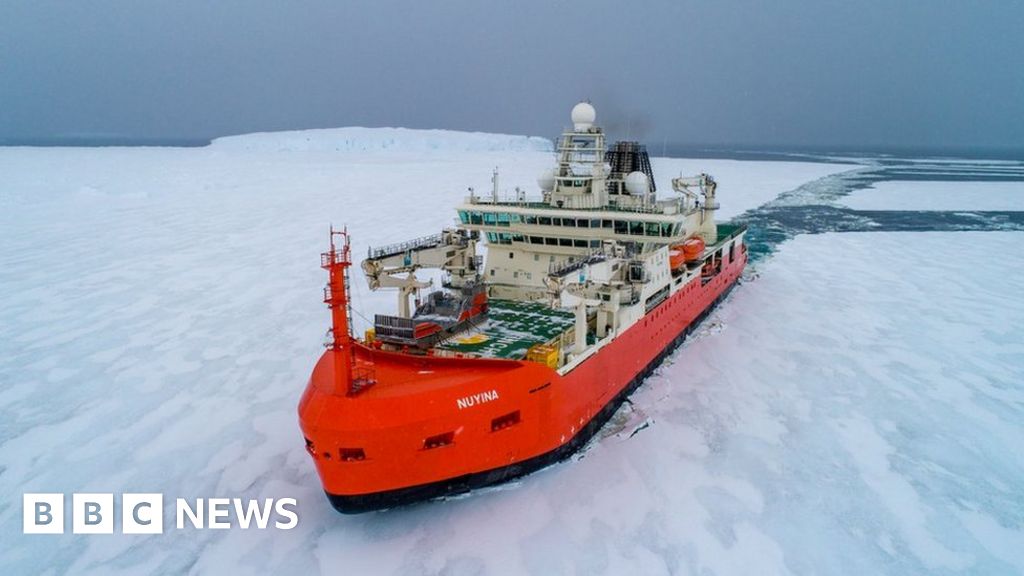
www.bbc.com
Australia launches mission to rescue Antarctic researcher
An icebreaker is sent from Tasmania to evacuate an Australian with a "developing medical condition".
International
Australia has launched an urgent operation to rescue a researcher with a "developing medical condition" from the remote Casey outpost in Antarctica.
The icebreaker RSV Nuyina left from Tasmania last week, the Australian Antarctic Program (AAP) said.
It is travelling thousands of miles to reach the station after an air rescue was ruled out due to harsh conditions.
The AAP said the researcher, an Australian, needs specialist treatment but did not name the condition.
The programme added that it had taken weeks to prepare the Nuyina for the mission, including equipping it with helicopters.
Casey research station is a journey of 2,139 miles (3,443km) from Hobart in Tasmania and one of three permanent Antarctic stations run by the AAP.
The Nuyina, which cost A$528m ($342m; £271m) to build, has a top speed of 16 knots, or around 18 miles an hour, meaning a journey of several days.
It is understood that an evacuation by air was not possible - the nearby Wilkins aerodrome near Casey has an ice runway and is often unusable during the harsh winter.
According to reports the runway would need weeks of preparation to use, and therefore it is far quicker to send the icebreaker.
Medical facilities are limited on the research station, and only about 20 people live there during winter when conditions are at their worst.
A spokesman for the AAP told the BBC that the "wellbeing of our people is our highest priority".
"The expeditioner's family is being kept fully informed of the situation," it added. "All other personnel on stations are accounted for and safe."
Australia requires all researchers sent to Antarctica to undergo lengthy medical examinations before deployment.
Evacuations from one of the most inhospitable areas of the planet are often complex, expensive, fraught with danger and can require assistance from international partners.
In December 2020, Australia needed help from the US and China to evacuate an expeditioner.
Earlier the same year, an Australian Airbus A319 was sent to McMurdo station to evacuate an unwell American.
























































